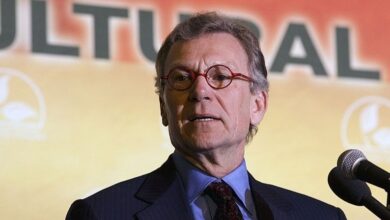RFK JR Wasn’t Always Anti-Drugs. The Time He was Arrested for Heroin in South Dakota

September 1983
RAPID CITY, S.D. — Robert F. Kennedy Jr., hands shaking but voice loud and clear, pleaded guilty Friday to a felony charge of heroin possession.
Guarded by three deputies ordered to duty by a sheriff mindful of the Kennedy family assassinations, Kennedy told Circuit Judge Marshall Young: ‘…I was in possession of two-tenths of a gram of heroin.’
Kennedy was charged with one felony count of heroin possession after he became ill on board a Republic Airlines flight that landed in Rapid City last September.
When Young read the charge and asked him how he would plead, Kennedy stood with shaking hands but replied in a loud, clear voice, ‘Guilty, your honor.’
Kennedy then told the judge about the amount of heroin he possessed and Young asked, ‘You knew it was heroin?’Kennedy again replied, ‘Yes, your honor.’
Kennedy, wearing a black top coat and accompanied by his wife, Emily, and brother, Joseph, entered the surprise plea in a courtroom guarded by three deputy sheriffs.
John Fitzgerald, the local attorney representing Kennedy, had said earlier he would enter an innocent plea. It took less than 15 minutes for charges to be read and for Kennedy, 30, to enter the plea.
Young agreed to allow Kennedy to remain free on a personal recognizance bond pending sentencing March 16.
Kennedy, son of the late Sen. Robert F. Kennedy, could be sentenced to up to two years in prison and fined $2,000. But authorities said it was more likely he would receive a suspended sentence.
Fitzgerald told Young that Kennedy had successfully completed an intensive drug rehabilitation program and was voluntarily continuing in an after-care program.
Two deputy sheriffs stood guard inside the courtroom and another stood outside to protect Kennedy on the last-minute orders of Sheriff Don Holloway.
Holloway said he had the assassinations of Kennedy’s father and uncle, President John F. Kennedy, in mind when he ordered the extra guards.
‘I don’t expect anything to happen but I want to be prepared just in case to make sure nothing happens,’ he said. ‘People in the past have expressed hostilities toward the Kennedys because of their name.’
Fitzgerald said it was Kennedy’s idea to switch the plea from innocent to guilty and that Kennedy made the decision ‘prior to going to court.’
‘The decision of the plea is the decision of the client,’ he said.
State’s attorney Rod Lefholz said he was surprised by the plea.
‘You always anticipate a not guilty plea,’ he said. ‘When you get a guilty plea that kind of sounds the end of the case and you’re always happy to move cases along.’
Lefholz said the ultimate decision on Kennedy’s sentence was up to the judge. ‘I’m sure he’ll be influenced by a pre-sentence investigation and whatever evidence attorneys want to present.’
But he said it has been his experience in similar drug possession cases that the judge leans toward a suspended sentence.
‘Based on the track record for the past three to four years all people convicted of possession, not distribution, receive a suspended sentence,’ he said.
It was not immediately clear how the guilty plea would affect Kennedy’s future as an attorney. He passed the New York bar exam Dec. 9 but a felony conviction could disbar Kennedy in New York, said Joseph Lucchi, chief clerk of the First Appellate Division in New York.
Lucchi said Kennedy had not yet applied for his license and the case would have to be taken under consideration by the New York Bar Association’s Committee on Character and Fitness.




